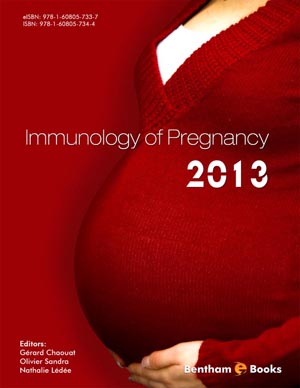Abstract
Progesterone supplementation has been used as a treatment for threatened miscarriage to prevent spontaneous pregnancy loss. Although a plethora of key functions and pathways affected by progesterone have been identified, there are still not sufficient diagnostic methods to precisely identify the groups of patients that would benefit from progesterone-treatment. We review the progesterone-induced genes and pathways, which control the process of endometrial receptivity as well as decidualization, and shape the immunological microenvironment at the materno-fetal interface. Recent clinical data suggest a possible beneficial effect of progesterone in the therapy of threatened miscarriage; still, further, larger, randomized controlled trials on the effect of progestogens on the treatment of threatened miscarriage are needed.
Keywords: Threatened miscarriage, progesterone, Hox10, Ihh, Hand2, TGF beta, PIBF.






















